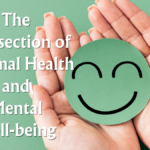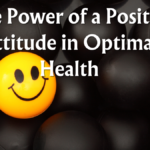Unlocking Wellness: 101 Expert-Backed Tips for Optimal Health, Nutrition, Diet, Exercise, Yoga, Sleep, Positive Attitude, and Well-being
101 Best Health Tips for Optimal Well-being
Optimal health is a holistic journey encompassing various aspects of life, from nutrition and exercise to mental well-being and positive lifestyle choices. Here are 101 tips to guide you toward a path of optimal health:
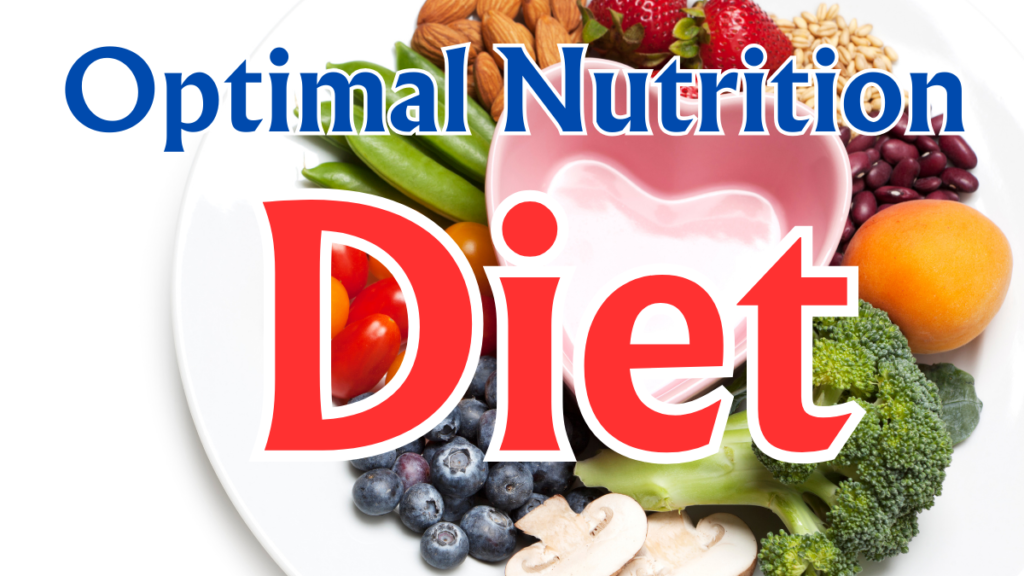
Nutrition and Diet:
1. Prioritize a well-balanced diet with a variety of fruits, vegetables, whole grains, and lean proteins.
2. Stay hydrated by drinking an adequate amount of water throughout the day.
3. Limit processed foods, sugary drinks, and excessive intake of caffeine.
4. Include omega-3 fatty acids in your diet for brain and heart health, found in fish, flaxseeds, and walnuts.
5. Practice mindful eating by savoring each bite and paying attention to hunger and fullness cues.

Exercise and Physical Activity:
6. Engage in at least 150 minutes of moderate-intensity aerobic exercise or 75 minutes of vigorous-intensity exercise per week.
7. Incorporate strength training exercises to improve muscle tone and bone density.
8. Find activities you enjoy to make exercise a routine.
9. Take short breaks and stretch throughout the day, especially if you have a sedentary job.
10. Aim for 10,000 steps daily to promote cardiovascular health.

Mental Well-being:
11. Practice mindfulness and meditation to reduce stress and enhance mental clarity.
12. Prioritize sufficient sleep for 7-9 hours each night.
13. Foster positive relationships with friends and family for emotional support.
14. Seek professional help if dealing with persistent stress, anxiety, or depression.
15. Practice gratitude to cultivate a positive mindset.
Health Foods:
16. Include probiotics in your diet for gut health, found in yogurt, kefir, and fermented foods.
17. Consume antioxidants through colorful fruits and vegetables to combat free radicals.
18. Incorporate green tea into your routine for its antioxidant and anti-inflammatory properties.
19. Choose whole, unprocessed foods to maximize nutritional benefits.
20. Experiment with herbs and spices to add flavor to meals without excess salt or sugar.

Positive Lifestyle Choices:
21. Avoid smoking and limit alcohol intake for overall health benefits.
22. Maintain a healthy weight through a combination of diet and exercise.
23. Stay up to date with regular health check-ups and screenings.
24. Practice safe sun exposure and use sunscreen to protect your skin.
25. Foster a positive work-life balance to reduce stress and burnout.
Yoga and Flexibility:
26. Include yoga or stretching exercises to improve flexibility and balance.
27. Practice deep breathing exercises to enhance lung capacity and relaxation.
28. Attend yoga classes or follow online sessions for guided practice.
29. Incorporate mindfulness into your yoga routine for a holistic experience.
30. Listen to your body and avoid pushing yourself into painful positions.

Sleep Activities:
31. Establish a consistent sleep schedule by going to bed and waking up at the same time daily.
32. Create a calming bedtime routine to signal your body that it’s time to wind down.
33. Keep your sleep environment comfortable, dark, and quiet.
34. Limit screen time before bedtime to improve sleep quality.
35. Invest in a supportive mattress and pillows for optimal sleep posture.
Positive Attitude:
36. Cultivate a positive mindset by focusing on solutions rather than problems.
37. Practice self-compassion and avoid negative self-talk.
38. Surround yourself with uplifting and positive influences.
39. Embrace a growth mindset, viewing challenges as opportunities for learning.
40. Celebrate achievements, no matter how small, to boost self-esteem.
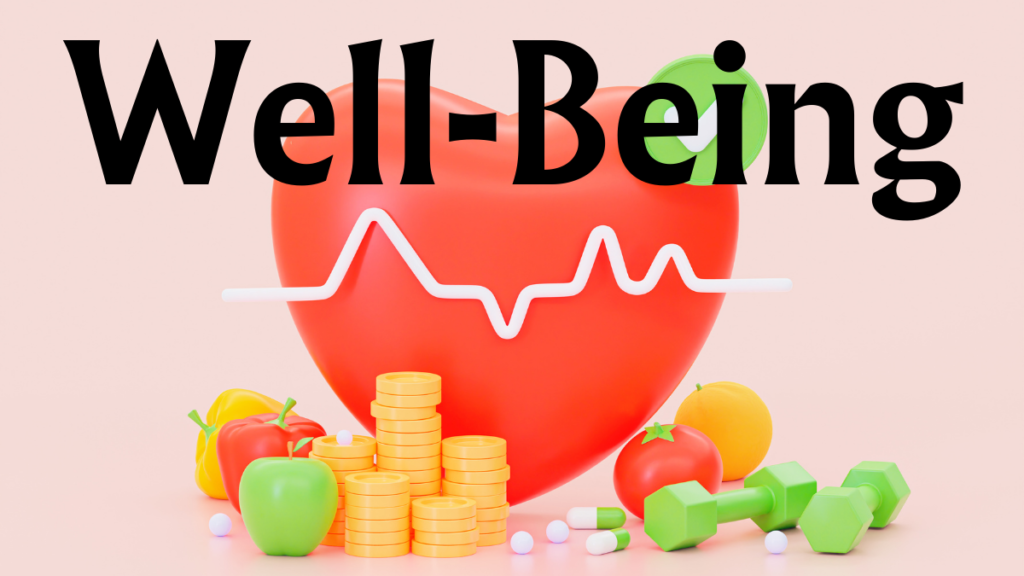
Well-being Practices:
41. Engage in activities that bring joy and fulfillment.
42. Set realistic goals and break them into achievable steps.
43. Take breaks to prevent burnout and maintain overall well-being.
44. Develop healthy coping mechanisms for stress, such as journaling or hobbies.
45. Volunteer or engage in acts of kindness to enhance feelings of purpose.
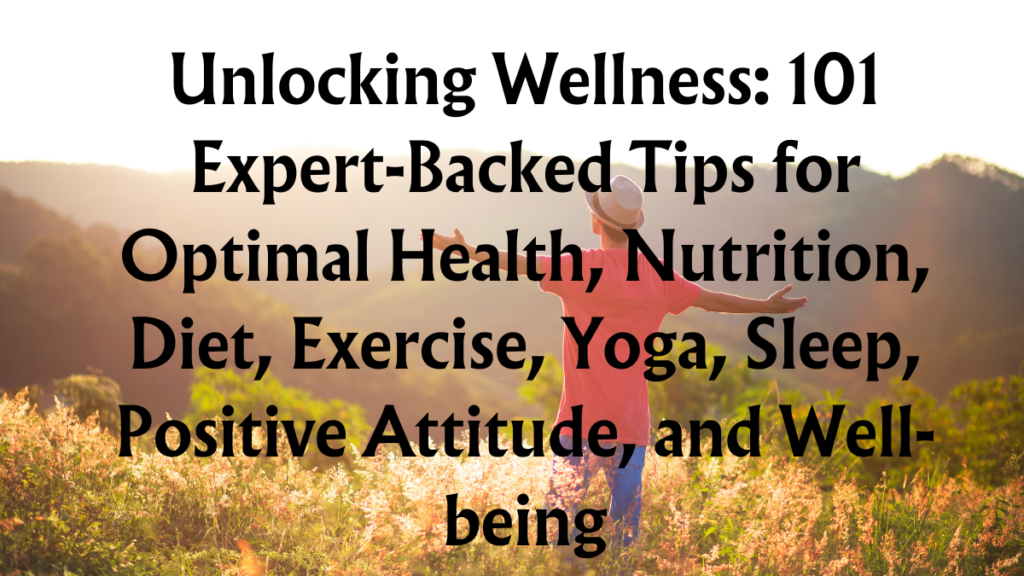
Holistic Health:
46. Consider alternative therapies like acupuncture or massage for overall well-being.
47. Explore the benefits of aromatherapy for relaxation and mood improvement.
48. Connect with nature by spending time outdoors and embracing green spaces.
49. Practice mindful walking to combine physical activity with mental relaxation.
50. Balance work and leisure activities to promote a holistic lifestyle.
Healthy Aging:
51. Prioritize bone health by incorporating calcium-rich foods and weight-bearing exercises.
52. Include flexibility exercises to maintain joint health as you age.
53. Stay socially active to combat isolation and loneliness.
54. Focus on brain health with activities like puzzles, reading, or learning new skills.
55. Embrace aging as a natural part of life, fostering a positive attitude.
Heart Health:
56. Choose heart-healthy fats found in avocados, nuts, and olive oil.
57. Include aerobic exercises to support cardiovascular health.
58. Monitor blood pressure and cholesterol levels regularly.
59. Limit saturated and trans fats for heart health.
60. Incorporate fiber-rich foods like whole grains, fruits, and vegetables.
Cognitive Health:
61. Stay mentally active with puzzles, games, or learning new skills.
62. Prioritize quality sleep to support cognitive function.
63. Include omega-3 fatty acids for brain health.
64. Manage stress through relaxation techniques to protect cognitive abilities.
65. Stay socially engaged to promote cognitive well-being.
Stress Management:
66. Practice time management to reduce feelings of overwhelm.
67. Establish healthy boundaries to prevent excessive stress.
68. Develop a stress management plan with coping strategies.
69. Identify stress triggers and work towards minimizing them.
70. Incorporate activities you enjoy to counteract the effects of stress.
Healthy Snacking:
71. Choose nutrient-dense snacks like fresh fruits, vegetables, or nuts.
72. Avoid mindless snacking by being mindful of portion sizes.
73. Stay hydrated, as thirst can sometimes be mistaken for hunger.
74. Plan snacks ahead of time to avoid reaching for unhealthy options.
75. Experiment with healthy snack alternatives to satisfy cravings.
Hydration Habits:
76. Drink water regularly throughout the day to stay hydrated.
77. Limit sugary drinks and opt for water, herbal tea, or infused water.
78. Monitor urine color as a simple indicator of hydration status.
79. Carry a reusable water bottle to encourage regular water intake.
80. Incorporate hydrating foods like water-rich fruits and vegetables.
Balanced Meals:
81. Structure meals with a combination of carbohydrates, proteins, and healthy fats.
82. Include a variety of colorful vegetables for diverse nutrients.
83. Choose whole grains over refined grains for added fiber.
84. Practice mindful eating by savoring flavors and chewing slowly.
85. Plan meals ahead of time to make healthier choices.
Emotional Intelligence:
86. Develop emotional intelligence by recognizing and managing emotions.
87. Practice empathy towards others to build meaningful connections.
88. Communicate effectively to express emotions constructively.
89. Foster emotional resilience by adapting to challenging situations.
90. Prioritize self-care activities to nurture emotional well-being.
Immune System Boosters:
91. Consume immune-boosting foods like citrus fruits, garlic, and ginger.
92. Prioritize a nutrient-rich diet to support overall immune function.
93. Get regular exercise to enhance immune system activity.
94. Ensure adequate sleep to allow the body to recover and strengthen the immune system.
95. Manage stress, as chronic stress can compromise immune function.
Relationship Health:
96. Foster open communication and active listening in relationships.
97. Spend quality time with loved ones to strengthen connections.
98. Set boundaries to maintain healthy relationships.
99. Practice forgiveness and let go of grudges for emotional well-being.
100. Support each other’s personal growth within relationships.
101. Celebrate milestones and create positive memories together.
Remember, optimal well-being is a continuous journey that requires mindful choices, self-awareness, and a commitment to a balanced and healthy lifestyle. Consult with healthcare professionals for personalized advice, and enjoy the rewarding benefits of prioritizing your health.
https://en.wikipedia.org/wiki/Well-being_contributing_factors





